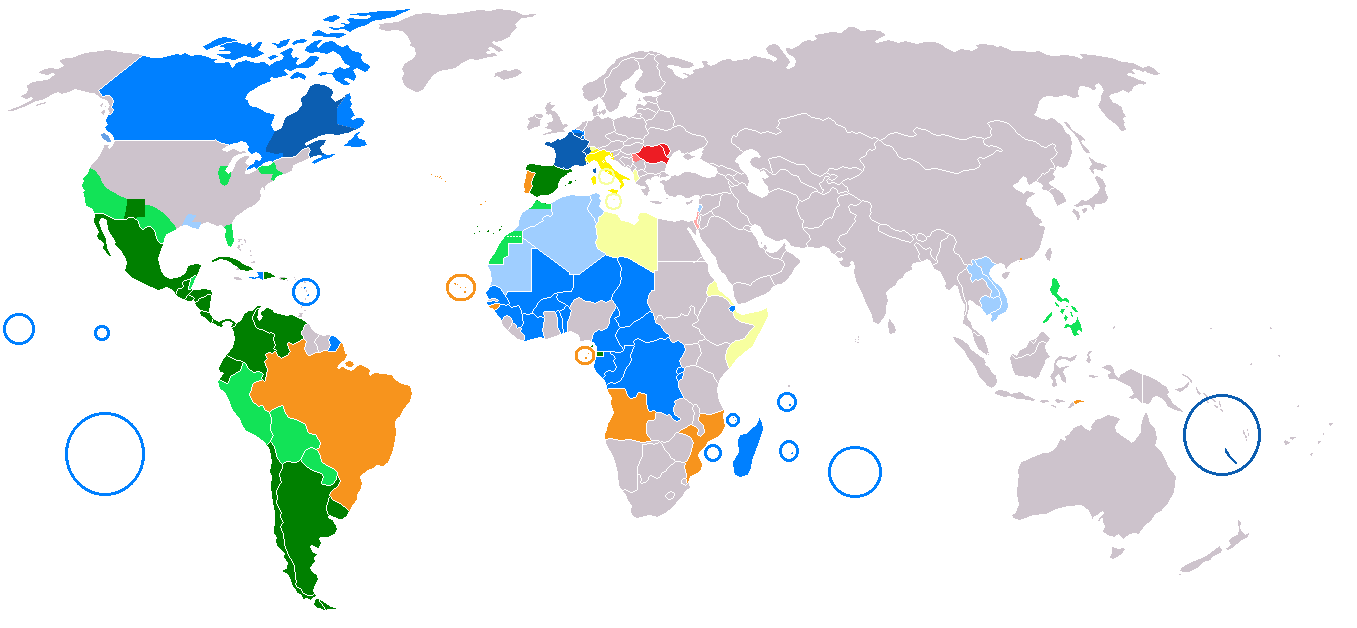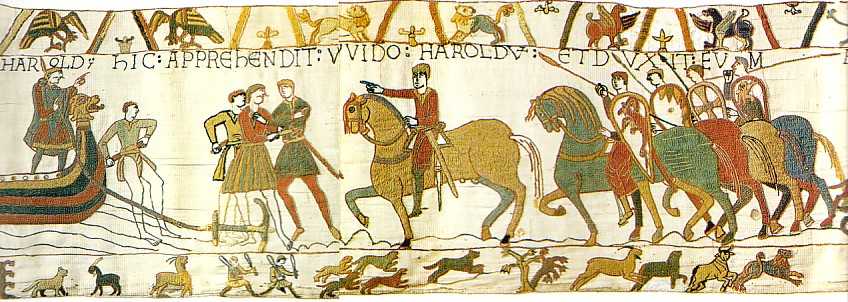I’ve talked a little about how my Spanish gives me a shortcut to learning Portuguese quickly, but a lot of people might not know that even just speaking English gives you a huge leg up on learning Spanish, Portuguese, and other Romance languages.
What’s a Romance language?

The Romance languages are the modern descendants of the Vulgar (meaning “of the common people”) Latin spoken in the Roman Empire. They include some of the most widely spoken and historically influential languages on the planet. In all they are spoken natively by approximately 800 million people worldwide. The largest include:
- Spanish, 410 million native speakers as of 2010 (more than English, second only to Mandarin Chinese)
- Portuguese, 215 million
- French, 75 million
- Italian, 59 million
- Romanian, 24 million
Plus dozens of other regional dialects and languages. If you’re interested in learning a useful language for international business or travel, you could do much worse than choosing a Romance language. But what I really wanted to get into here is the added bonus of how easy Romance languages are to learn if you happen to be an English speaker.
Distant Indo-European Cousins
The Romance languages share a common ancestry with English, along with most of the other languages of modern Europe, Iran, Afghanistan, Pakistan, and India, dating to roughly 6,000 years ago. This means that, although they are now completely different languages that sound nothing alike, they actually have much more in common than you’d think, especially in terms of vocabulary and grammar. For example, here are the numbers 1-10 in a few Indo-European languages:
| English | Spanish | Portuguese | French | German | Welsh | Greek | Russian | Persian |
| one | uno | um | un | ein | un | énas |  odin |  yek |
| two | dos | dois | deux | zwei | dau | dýo |  dva |  do |
| three | tres | três | trois | drei | tri |  trÃa |  tri |  seh |
| four | cuatro | quatro | quatre | vier | pedwar |  téssera |  chetyre |  chahaar |
| five | cinco | cinco | cinc | fünf | pump |  pénte |  pyat’ |  panj |
| six | seis | seis | six |  sechs |  chwech |  éxi |  shest’ |  shesh |
| seven | siete | sete | sept |  sieben | saith |  eptá |  sem’ |  haft |
| eight | ocho | oito | huit | aucht | wyth |  októ |  vosem’ |  hasht |
| nine | nueve | nove | neuf | neun | naw |  ennéa |  devyat’ |  noh |
| ten | diez | dez | dix | zehn | deg |  déka |  desyat’ |  dah |
Obviously, they are very different from each other, but if you look closely, you can spot some patterns and similarities.
These similarities are a tremendous help when learning other Indo-Euopean languages, especially if you know where to look. However, the Romance languages share an even closer bond with English. This special relationship is enough to help you boost your vocabulary very quickly, and might even help you with your English at the same time!
Romance – English’s “Adopted” Family
English is at its heart a Germanic language – closely related to modern German, Dutch, and Swedish, and if you read anything written in old English (i.e. written before A.D. 1066), such as Beowulf, it’s for the most part a completely different language from the English we know and love today. However, in 1066, the Normans – French speaking Vikings – invaded and conquered England. Over the next few centuries their French had a huge influence over English, fundamentally changing it.

It’s because of this historical fact that we have so many pairs of words in English that mean the same thing, but where one of them sounds more “educated,” such as brotherhood and fraternity, heavenly and celestial, kingly and royal. In each of those pairs, the first is a native English word, and the second from French or Latin.
Because of all this borrowing from French into English, there are a huge number of cognates (words with a common origin and similar meaning) between English and the Romance languages. “Information” is información in Spanish and informação in Portuguese. “Opportunity” is oportunidad and oportunidade, respectively.
This leads to an interesting quirk when it comes to learning Romance languages. The first words you will need to learn, the I‘s, you‘s, be‘s, do‘s, etc., will have to be learned and memorized normally, but when it comes to the more advanced vocabulary, the words will be much more similar, and in many cases you will even be able to guess and probably get it right. For example, the sentence “Various political opinions inform national agendas,” is usually not the kind of sentence you’d think you’d be able to say in your target language within the first few days of learning, but that sentence in Spanish is, “Varias opiniones poÃticas informan agendas nacionales.” Not exactly the same, but close enough to be able to guess.
I’ve even found that learning Romance languages can boost your English vocabulary. For example, if you come across the word mellifluous and don’t know the meaning, but you do know from your Spanish that miel means “honey,” and fluir means “to flow,” you might be able to figure out that mellifluous speech or music is so sweet and smooth that it sounds almost like flowing honey.
So, keep that in mind. Languages are actually not all that hard to learn if you know where to look for the shortcuts!